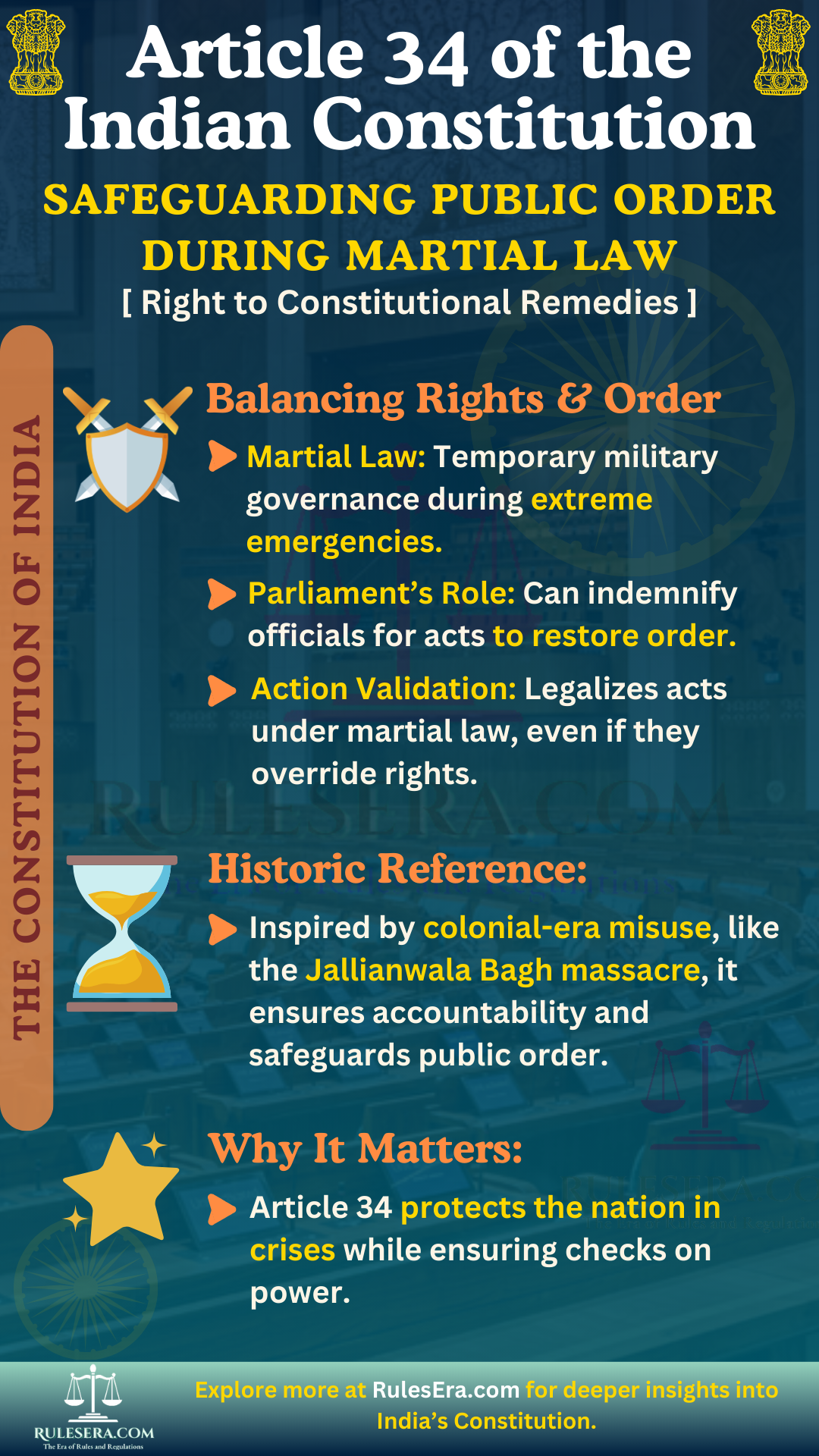Part III: Fundamental Rights
Right to Constitutional Remedies
Article 34: Restriction on Rights During Martial Law

Article 34 allows Parliament to impose certain restrictions on fundamental rights during the enforcement of martial law, providing indemnity for actions taken to maintain or restore order under martial law conditions.
Explanation
This article empowers Parliament to protect individuals from legal liability for actions taken during martial law, emphasizing the importance of order during crises.
Key Aspects of Article 34
- Martial Law Application: Applies only in areas where martial law has been declared to restore public order during emergencies.
- Parliamentary Indemnity: Grants indemnity to Union or State personnel for actions taken under martial law, safeguarding them from legal challenges.
- Validation of Actions: Ensures that sentences, punishments, and other actions under martial law are legally validated by Parliament, even if they contravene usual constitutional rights.
Real-Life Applications
Although martial law has not been declared in independent India, historical events like the Jallianwala Bagh massacre under British rule illustrate the potential consequences of martial law, underlining the importance of checks and balances in its application.
Frequently Asked Questions (FAQs):
Article 34 allows Parliament to indemnify individuals acting under martial law to restore order, ensuring that actions taken are protected from legal challenges during times of extreme crisis.
Martial law has not been enforced in independent India, though the provisions are in place for handling severe internal disturbances or external threats if needed.